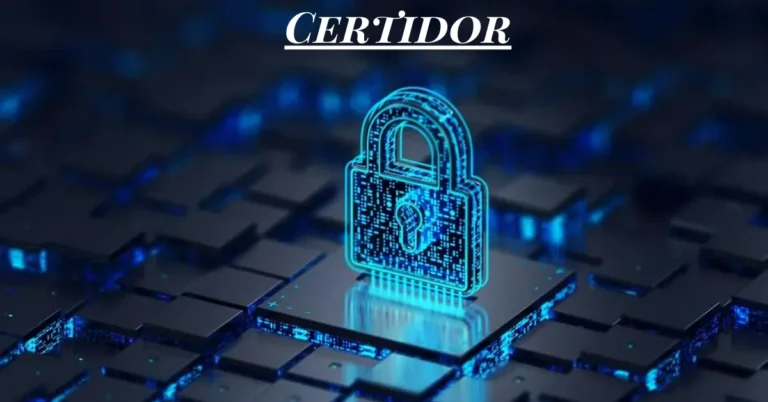Smart Home Technologies for Modern Living
In the constantly changing technology landscape, smart homes are gaining more and more popularity. These homes incorporate advanced technologies to enhance comfort, efficiency, and security. These features are becoming more common, offering flexibility and convenience for homeowners looking to modernize their living spaces, observes leading property management company, Rockbridge Real Estate team.
Understanding how smart home technologies can transform daily life is crucial for anyone looking to modernize their living space. These innovations, from smart speakers playing your favorite tunes to thermostats maintaining your home’s ideal temperature, streamline daily tasks and lead to notable energy conservation. Let’s delve into the world of smart homes and explore how you can benefit from these advancements. Cutting-edge technology is more than just a passing fad; it is revolutionizing the way we live in our homes by enhancing efficiency, safety, and convenience across all areas of household maintenance.
Table of Contents
- Introduction to Smart Homes
- Benefits of Smart Home Technologies
- Popular Smart Home Devices
- Smart Speakers
- Smart Thermostats
- Smart Lighting
- Ensuring Security with Smart Devices
- The Future of Smart Home Automation
- Tips for Integrating Smart Technologies in Your Home
- Common Misconceptions about Smart Homes
- Resources for Further Information
Introduction to Smart Homes
Smart homes utilize internet-connected devices to manage appliances and systems remotely. These homes represent the intertwining of information technology with home environment systems such as lighting, climate, entertainment, and security. The primary goal of smart homes is to make life easier and more efficient, saving time and energy in both literal and metaphorical senses. As technology advances, smart home systems are becoming more affordable and accessible, paving the way for an intelligent transformation in home environments. They provide a platform for immense customization, allowing each homeowner to create a space uniquely suited to their lifestyle.
Benefits of Smart Home Technologies
Smart home technologies offer numerous advantages that extend beyond mere convenience. They enable homeowners to remotely control and monitor their homes, significantly enhancing their daily routine management. Additionally, these technologies can optimize energy usage, reduce waste, and lower utility bills—a boon for your wallet and the environment. Integrating smart devices into your home can significantly improve energy consumption. According to an article in the NY Times, integrating smart devices can dramatically enhance energy efficiency, contributing to a more sustainable lifestyle. Energy management systems can also adjust the usage of appliances during peak demand, thus lowering energy prices and usage costs. For those intrigued by the technological advancements in residential living, the opportunity to explore Wellington FL Homes for Sale can provide insights into cutting-edge innovative features in modern houses.
Popular Smart Home Devices
Many smart devices are available that cater to various aspects of home living. From smart speakers acting as your home’s command center to security cameras ensuring your safety, these gadgets are reshaping how we interact with our living spaces. Exploring these devices can open new possibilities for managing everyday tasks more efficiently and enjoyably.
Smart Speakers
Smart speakers like Amazon Echo and Google Home have become household staples. They offer voice-activated assistance, allowing users to control various smart devices, provide information, and stream music. These speakers are often the gateway to building a comprehensive smart home ecosystem. With capabilities beyond simple audio output, they can control other connected devices, set reminders, answer queries, and even help manage your shopping list, thus acting as the commanding hub of a smart home.
Smart Thermostats
Smart thermostats, like the Nest and Ecobee, adjust your home’s temperature based on your habits and preferences. Smartphone apps can control them remotely, ensuring comfort and energy efficiency. These devices learn from your usage patterns and adjust settings automatically, enhancing the comfort of your home environment and optimizing energy consumption. A Tech Radar guide shows how these devices can significantly reduce energy consumption, offering utility savings and an improved environmental footprint.
Smart Lighting
Intelligent lighting systems make it easy to adjust lighting preferences throughout your home. Homeowners can set schedules, dim lights, or change colors using apps or voice commands. These systems enhance ambiance and contribute to energy savings by ensuring lights are only on when needed. They can create mood settings for different activities and times of the day, from a bright and energizing morning setup to a soft, warm light ideal for winding down in the evening.
Ensuring Security with Smart Devices
The integration of smart home devices raises security concerns. With increased connectivity comes the potential risk of cyber threats exploiting home network vulnerabilities. To mitigate risks, homeowners should use secure passwords, regularly update software, and ensure strong encryption on connected devices. Taking these precautions helps protect against cyber threats and ensures your smart home remains a safe enclave. Regularly monitoring connected devices and staying informed about the latest security measures can provide peace of mind in this rapidly advancing smart home landscape.
The Future of Smart Home Automation
The smart home industry is rapidly evolving, with advancements in artificial intelligence (AI) and the Internet of Things (IoT) at the forefront. Future smart homes will likely feature enhanced integration across devices, offering seamless user experiences and automated systems tailored to individual needs. Integrating voice recognition and gesture-based controls may soon become standard, providing users with more intuitive and immersive interactions. Additionally, smart homes might better predict the needs of their occupants through data learning algorithms, thus creating environments that proactively adapt to individuals’ routines and preferences without explicit instructions.
Tips for Integrating Smart Technologies in Your Home
For those new to smart home technologies, starting with a smart speaker as a central hub is advisable. Gradually integrating other devices, such as thermostats and lighting, helps build a cohesive system. When expanding your smart home, ensure compatibility across devices and consider your household’s unique needs and habits. Test each component before expanding, ensuring compatibility and functionality, and opt for seamlessly working devices. Consulting with professionals or utilizing resources available on technology forums can also assist in smoothly transitioning to a more intelligent home setup.
Common Misconceptions about Smart Homes
Many people believe smart homes are complicated and costly. However, as technologies evolve, they become more user-friendly and affordable. Additionally, privacy concerns can be managed with proper security measures, including encryption and device management practices. The gradual decrease in the cost of intelligent technologies makes them more accessible to many households, debunking the myth that a smart home is an unattainable luxury.
Resources for Further Information
For those seeking more information, online forums, technology blogs, and professional consultations offer valuable insights. Websites dedicated to smart home technology reviews, such as Smart Home Platforms and Smart Home Blogs, provide invaluable comparisons and reviews for newbies and seasoned savvy homeowners alike. Staying informed empowers homeowners to make intelligent choices about integrating these technologies into their everyday lives, ensuring they leverage the best of what smart home technology offers.
Stay in touch to get more news & updates on Veri Fiedzine!






